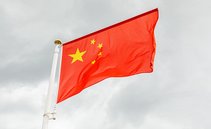Thanks to its numerous multimillion-dollar investments in Africa and other regions of the planet, China has secured its dominance in the lithium sector.

China’s latest sprint in the global race to dominate the lithium sector coincides with the recent flurry of work completed by its mining companies in Africa. In Zimbabwe Chinese companies like Zhejiang Huayou Cobalt, Sinomine Resource Group and Chengxin Lithium Group have completed strategic projects involving multi-million dollar plants to manage the processing of local "white gold".
Zimbabwe, located in southern Africa, is notably home to one of the largest lithium reserves in the world, the same one that has attracted Chinese companies active in the search for raw materials to build the lithium ion batteries, necessary for power a wide range of products, from electric vehicles to solar panels. “China is buying up all the lithium it can find. There is an absolute feeding frenzy,” an insider from the local industry told The Economist. Arcadia, the largest lithium mine on the continent, opened in 2023 by Zhejiang Huayou Cobalt.
Thanks to this and other key investments, Beijing today controls the global industry of precious lithium-ion batteries and also dominates much of the processing of the same mineral. Furthermore, to accumulate the raw materials it needs, China has strengthened its diplomatic relations with African, Southeast Asian, and Latin American countries. It did it earlier, and above all in a more convincing way, than the United States. Who now, together with the entire West, are wondering about the effects of such a situation. Even more so if international tensions were to worsen.
Strategic relations between China and Zimbabwe
Benchmark Mineral Intelligence has estimated that the total size of the lithium commodity market will be nearly 1.2 million tonnes of lithium carbonate equivalent (LCE) in 2024, with Zimbabwe accounting for 6% of this figure. By the end of the decade, Africa will contribute a 14% share of the global supply of lithium raw materials, up from 4% last year. Considering that the Dragon is at the forefront of the African continent, it is not surprising that the country has managed to dominate the entire lithium and other mineral resources sector.
The South China Morning Post cited some emblematic passages concerning Zimbabwe itself. Sinomine Resource Group has spent $300 million on the construction of various facilities; in June 2022, it paid 180 million to buy the Bikita mine, which holds the largest known lithium deposit in the world (about 11 million tons).
Prospect Lithium Zimbabwe, a unit part of Chinese mining giant Zhejiang Huayou Cobalt, has commissioned a $300 million lithium processing plant at the Arcadia hard-rock lithium mine in the city of Goromonzi. We are talking about a facility with a processing capacity of 4.5 million tons of hard lithium, which translates into approximately 400,000 tons of concentrate per year for export, subsequently ending up in the hands of Huayou Cobalt for $422 million.
The Chengxin Lithium Group has instead commissioned a 300,000 tonnes per year lithium concentrator in the Sabi Star mine, in eastern Zimbabwe. In 2021, the same company spent $77 million on a deal that included mineral rights in the same, largely unexplored mine, and invested another $130 million to build its lithium processing plant.
Beijing is hungry for lithium
According to the Carnegie Endowment for International Peace, in 2022 the value of China’s mineral and energy imports was double that of America and the EU combined. Furthermore, in 2025, according to Rystad Energy, the African share of global lithium production will be 10.6%, up from 0.1% in 2019, with Zimbabwe accounting for the majority of the increase. Overall, more than 90% of African supply this decade will come from entities at least partly owned by Chinese companies, Benchmark Mineral Intelligence further concluded.
China currently holds 8% of global lithium reserves, but refines 60-70%. However, it is not just lithium that is at stake. The Western bloc is worried about the dominant position consolidated by the Asian giant in many of the sectors concerning minerals crucial for the energy transition, including cobalt and metals belonging to the so-called family Rare lands. It will not be easy for the West to catch up with China.
Original article published on Money.it Italy 2024-03-25 07:26:00. Original title: Come e perché la Cina sta vincendo la guerra del litio contro gli Usa






